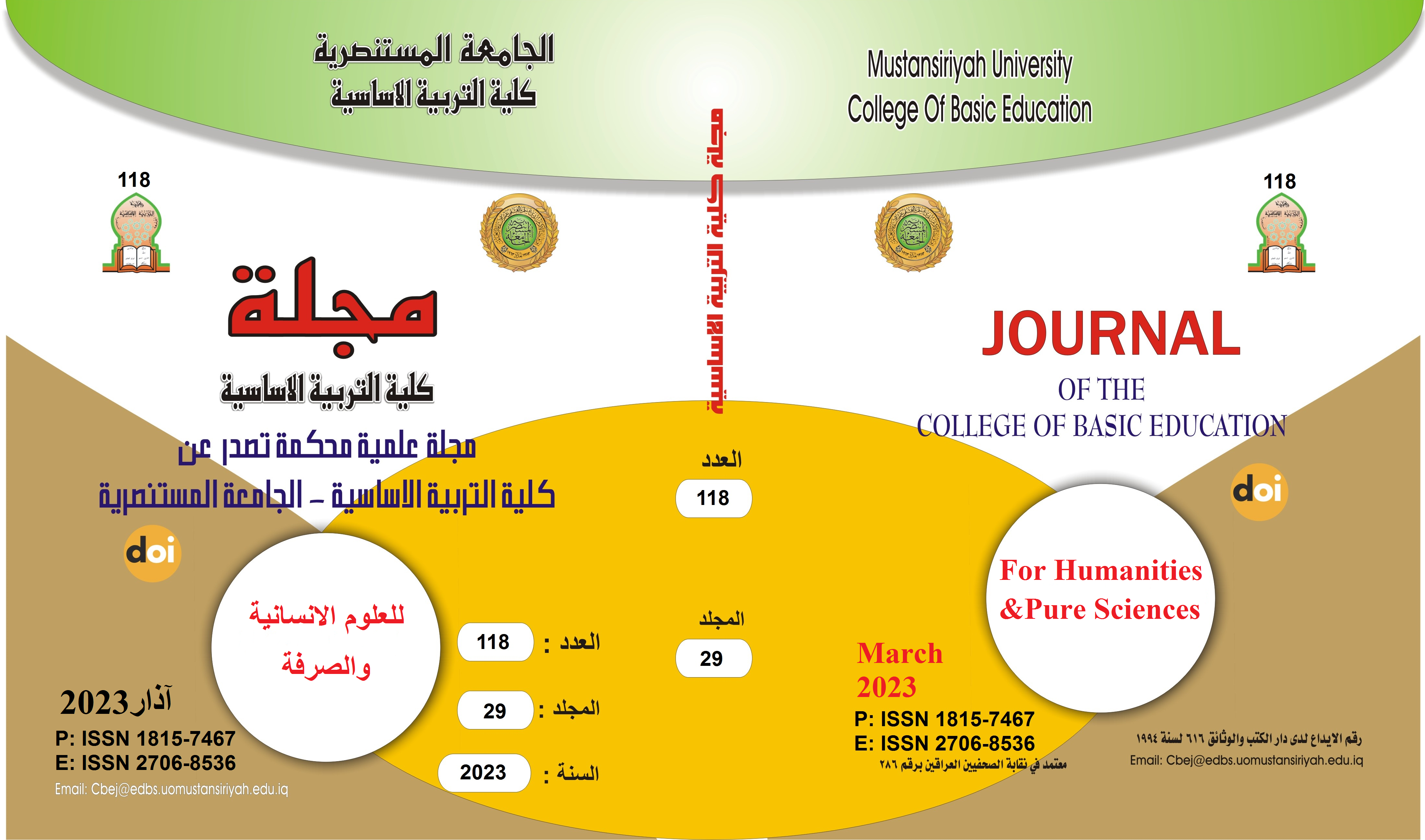The teaching performance of physics teachers in the light of Meyer's cognitive theory and its relationship to the information generation skills of their students
Main Article Content
Abstract
Summary of the research:
The current research aims to know the performance of physics teachers in the light of Meyer's cognitive theory and its relationship to the skills of generating information for their students.
1) There is no statistically significant difference at the level (0.05) between the average scores of physics teachers in the light of Meyer's theory and the hypothetical mean of the questionnaire.
2) There is no statistically significant difference at the level (0.05) between the average scores of physics teachers in the light of Meyer's theory according to the gender variable (male, female).
3) There is no statistically significant difference at the level (0.05) between the average scores of the information generation skills of the students of physics teachers and the hypothetical mean of the test.
4) There is no statistically significant correlation at the level (0.05) between the level of physics teachers' performance according to Meyer's theory and the level of information generation skills of their students.
To achieve the objectives of the research and its hypotheses, the researchers adopted the descriptive approach, and the research sample reached (100) physics teachers out of (112) who teach applied fifth grade students in preparatory schools affiliated to the Directorate of Education in Babylon Governorate, for both sexes, and the questionnaire tool was applied to them, and a sample was selected Students by random drawing by (35%) of the original community, where the sample consisted of (500) male and female students out of (1430) students from the applied fifth grade who study physics by the teachers of the subject. The researchers prepared a questionnaire for the performance of physics teachers in the preparatory stage according to Meyer's cognitive theory, and it included three axes of teaching performance (planning - implementation - evaluation), where the paragraphs were distributed on it, as each axis consists of eight paragraphs and each paragraph has five alternatives (always, often, sometimes, rarely, never). Its veracity was confirmed by presenting it to a committee of expertise and specialization, and its stability using the Alpha Cro-Nabach method (80%) and the information generation skills test. The two researchers prepared the information generation skills test that includes (24) items within (4) fields, with (6) items for each field. The type of paragraphs is multiple choice, its validity was confirmed by presenting it to the arbitrators, and its reliability by the Faker and Nabakh method (0,82). The two researchers reached the following results:
- The performance of physics teachers in the light of Meyer's theory is acceptable; The researchers attribute to the use of some modern methods of teaching, and the use of some physics teachers educational methods that increase student learning.
The results showed that there was no effect of the gender variable between male and female teachers' performance level in the light of Meyer's theory.
- The information generation skills of the applied fifth grade students was statistically significant, meaning that they have information generation skills.
There is a statistically significant correlation between the degrees of physics teachers according to Meyer's theory and the degrees of their students in the test of information generation skills. Expand students' ideas, and predict them.
Keywords: performance, Mayer's cognitive theory, information generation skills
Article Details

This work is licensed under a Creative Commons Attribution-ShareAlike 4.0 International License.
